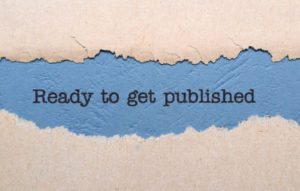Oh-oh I am guilty of a few of these. However, In my defense I only use “however” in business writing. Now I am going to be extra careful none of these are used in my literary writing. It is a great post because by getting rid of these words you actually make your writing more active.
Top 10 Words That Will Kill Your Writing DEAD
 So I read screenplays for a living, plus I spend a huuuuuuge part of my life reading FOR FUN (wtaf!), so I’ve discovered there are certain words that crop up again and again and again which threaten to TORPEDO writers’ narrative efforts.
So I read screenplays for a living, plus I spend a huuuuuuge part of my life reading FOR FUN (wtaf!), so I’ve discovered there are certain words that crop up again and again and again which threaten to TORPEDO writers’ narrative efforts.
I call these ‘crutch words’ (quiet at the back). Crutch words are those we may rely on in EARLY DRAFTS, which we need to seek out with a torpedo of our own and DESTROY in the edit process. Whether you’re a screenwriter or novelist (trad or self published), look out for these suckers …
1) ‘Suddenly’
The actual word ‘sudden’ means ‘quick and without warning’, so it’s especially ironic that including the word LITERALLY SLOWS THE ACTION DOWN. WTAF is the point?? Compare:

 I spend about a hundred hours a year reading writers’ manuscripts and doing content edits on their stories. I’ve seen it all–stories that ramble on for 400+ pages, never really getting to the point; stories that start off pretty good and then about a quarter of the way in change into a totally different story; stories where the voice changes so many times you couldn’t keep up if you wanted to… I could go on.
I spend about a hundred hours a year reading writers’ manuscripts and doing content edits on their stories. I’ve seen it all–stories that ramble on for 400+ pages, never really getting to the point; stories that start off pretty good and then about a quarter of the way in change into a totally different story; stories where the voice changes so many times you couldn’t keep up if you wanted to… I could go on. by
by  I wish I could tell you that proofreading will always cost one cent per word, copyediting two cents per word, and developmental editing three cents per word, but the truth is much hazier than that.
I wish I could tell you that proofreading will always cost one cent per word, copyediting two cents per word, and developmental editing three cents per word, but the truth is much hazier than that. If you’re an author who has finished a manuscript, chances are, you may have seen the term ‘structural edit’ floating around. Perhaps you’ve even been told to have an editor look over your book for ‘structural’ issues.
If you’re an author who has finished a manuscript, chances are, you may have seen the term ‘structural edit’ floating around. Perhaps you’ve even been told to have an editor look over your book for ‘structural’ issues. Nothing can strike fear in the hearts of writers like editing. But if you’re going to improve your story, a thorough book edit is something that must happen. With the right tools, mindset, and preparation, it doesn’t have to be scary at all!
Nothing can strike fear in the hearts of writers like editing. But if you’re going to improve your story, a thorough book edit is something that must happen. With the right tools, mindset, and preparation, it doesn’t have to be scary at all! When I reached the end of my first draft of
When I reached the end of my first draft of  by Pat Haggerty
by Pat Haggerty

 This is part one of
This is part one of  Rachel Anderson asks: How did you get into editing? Did you start writing first and then take on editing as a natural second, or was it out of necessity since there are more opportunities for editors than writers?
Rachel Anderson asks: How did you get into editing? Did you start writing first and then take on editing as a natural second, or was it out of necessity since there are more opportunities for editors than writers?

 Roz Morris
Roz Morris